Lessons I Didn’t Learn In Photo School
1. If you can’t be remarkable, be memorable.
If you know of PixSylated, it’s probably because I… Pimped My McNally, Shot Ben Willmore In Broad Daylight, and then Smashed Pumpkins With High-Speed Sync. Is there really anything remarkable about coil-binding a book, constructing a DIY ringlight, or batting some vegetables around? I think not. Yet, I’ve met people all over the country who’ve said “You’re the guy who did that?” (Which I always choose to take as a compliment – regardless of how they really meant it.) Running with the pack won’t get you any attention these days. Create ways for people to remember you (and yes, crazy red is my natural hair color).
2. You are NOT defined by your photo gear or your computer’s operating system.
Nikon vs. Canon, Mac vs. PC. Truth be told… none of this matters to anybody other than the people who sell this stuff. Nobody will look at your photographs and shout “Yep, that guy’s a Nikon shooter on a PC. It just shows.” If you’re a hardcore Nikonian or Canonite, loosen up, trade cameras with a colleague, and go make some great photographs with another brand. Come to understand that your images are reflections of you as a human and not the machines you used to create them.
3. Powerful photographs touch people at a depth they don’t anticipate.
If you want to be a strong photographer… strive to create images that touch people’s lives. The most challenging part of this has nothing to do with the details of creating a photograph and everything to do with living an enriched life. If you know tons about photography but create shallow photos, then read literature, visit art galleries, learn ethnic cooking, volunteer, watch foreign movies, attend theater, travel, coach youth sports…
4. You have to let your images go out into the world without you.
If you feel compelled to talk every time you show your images, stop talking. If you write long captions to explain your images online, stop writing. Get used to the reality that you truly have little control over the perception of your work. Your images will be interpreted through the culture and life experiences of their viewers. To an American, a photo of a woman in a white dress can suggest purity or marriage. To a Chinese, the same photo could represent death and mourning. (For a fascinating look at cultural interpretation of color, check this out.) Stop trying to prop up your photographs with words. You have to let them go on their own. Doing so will make you a stronger photographer.
5. Cross-pollinate with photographers and other creatives.
There’s incredible strength in a web that’s woven of diversity. I recently attended WPPI – the huge wedding photographer’s convention in Vegas. In my career I’ve shot exactly one wedding. Yet, I was invigorated at WPPI by the vision and techniques of these combat-photographers-in-suits. It may be a long time until I shoot another wedding — but I now have a head full of ideas about how to elicit emotions from people, how to relax them in front of the camera, etc. As a commercial shooter, I’m really glad that I went to WPPI. If you’re drawn to landscape photography, get to know a sports photographer. If you shoot lifestyle, hang out with a still life photographer. If you’re too shy to photograph people, volunteer to hold the light for a wedding shooter. Also, be the bee and help other photographers connect and cross-pollinate.
6. Photography slices time. Photography gathers time.
We live in a motion picture that flows at a constant pace. The camera is not bound by this metronome. It can harvest very thin slices of time. It also can harvest very fat slices of time. I am as happy to shoot at 1/8000-second as I am to create blurry photos. Photography enables us to see beyond the limitations of human vision. At it’s best, photography allows us to see a quintessential nature that’s often too fleeting to be seen otherwise. Many, many times I’ve set out to create one image and realize afterward that I’d actually captured an unexpected and more powerful photograph. The quintessential often is discovered in hindsight rather then through intention. Fortunately, photography is very generous when it comes to giving us hindsight.
7. Learning to create photographs that “look” like your world should be only a milestone – not the destination.
Embrace the fact that cameras see differently than humans. Accept that, even today, state-of-the-art tools and technology fall short of reproducing the entire gamut of human vision. The reality is that photography cannot perfectly record or portray the world as we experience it. Yet, this is typically the goal of most neophyte photographers. They measure the “goodness” of their photos by how closely the images match what the shooter experienced. If this is you, with time and practice, you’ll come to understand that your photos will seldom (if ever) match your reality. When that awareness comes, celebrate! You’ve finally reached the true starting line on your journey as a photographer. What lies ahead is the exploration of how you can create photographs that express rather than represent.
8. “Coopetition” is a new business model that’s here to stay.
Competition + Cooperation = Coopetition. Old-school photographers (which has nothing to do with one’s age), keep their two or three secrets close to the vest. The rest of us understand the power of relationships and sharing. There are times when you have to compete. There are more times when it’s better to cooperate. Don’t hesitate to refer a prospect to a competitor if you are truly unable to accomplish the job. It’s quite probable that the next time your competitor can’t take a job because she’s already booked that your referral will be reciprocated. Share your knowledge freely and others will be glad to help you out when you ask.
9. Wars have been fought to protect your copyrights.
Copyright is a fundamental American right contained in the original version of our Constitution. Section 8 gives Congress the power “to promote the progress of science and useful arts, by securing for limited times to authors and inventors the exclusive right to their respective writings and discoveries”. Every time soldiers, sailors and pilots rush out to defend the Constitution, one of the principals they are defending is your copyrights. The basis of copyright predates other rights that were established by amendments to the Constitution — such as: separation of church and state, protection against unreasonable search and seizure, and the right of women to vote. Understanding copyright is not optional. It is essential. The AMSP (American Soceity of Media Photographers) has a fantastic tutorial on copyright here. “Work For Hire” is a closely-related topic that I wrote about here.
10. Your photographs have value. Don’t give them away.
Never sell your copyright outright or license work for free on the promise of future work or publicity. This is a common trap for new photographers. Your future relationship with a client will largely be defined by your first transaction. If someone wants to use your photograph, then it has value. Find a way to get value back for its use. Money is great, but barter is fine too. Think about what your client has that you can use. Understanding the concepts of licensing is critical. Check out the ASMP Licensing Guide here.
11. Your photographs have value. Give them away.
An easy way to gain access to real shoots and build your portfolio is to work with local non-profits. Find a cause that you believe in and there will be a non-profit that can use your services. In this economic climate, non-profits should jump at your offer to donate professional photography. The key here is that you initiate the contact and the cause is one you believe in. On the other hand, if you’re solicited by a non-profit and asked to work for free, it’s o.k. to be skeptical and ask the solicitor if he or she gets paid by the organization. Non-profits pay for legitimate business expenses all the time. Make your decision to support their cause accordingly.
12. Resist the temptation to become a pro photographer.
The true meaning of “amateur” is “someone who works for the love of it rather than for money”. Choosing to remain an amateur photographer is no measurement of your skill or commitment to the craft. The photo world is filled with unskilled professionals. Thinking that you want to be a pro shooter because you really love photography is absolutely the worst reason to get into the business. I guarantee you, if a love for photography is your main motivation, the economic realities of the industry today will pound your passion into the ground. If, however, your inner voice continues to shout “this is what I want to do” after your passion has been beat out of you, then you are truly hearing the call to the trade. Let me be the first to say “welcome” and “I’m here to help”.
Scott, thank you for having the courage to let me drive today. Originally, I thought I’d jot down a handful of insights that I would want to share with someone considering spending her or his life as a photographer. I’ve now come to realize that a new weekly feature on PixSylated has been born as there’s so much more to say. Thanks also to my family, friends, mentors for their patience and encouragement. Finally, a big shout to all the PixSylarians around the world who keep me on my toes after every post. It’s always great to hear from you.
To see my commercial work, check out SylArena.com.
If you’re looking to learn more about photography, keep your eyes on PasoRoblesWorkshops.com for some exciting announcements in the next few weeks.
Ciao! Syl



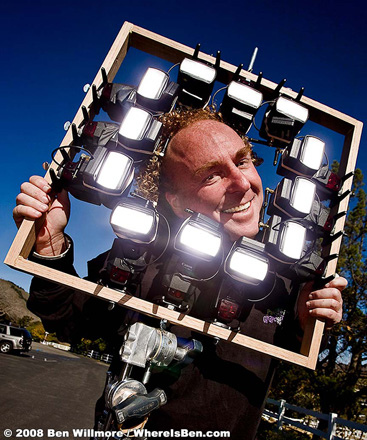
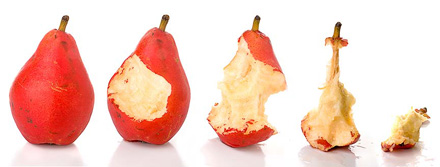
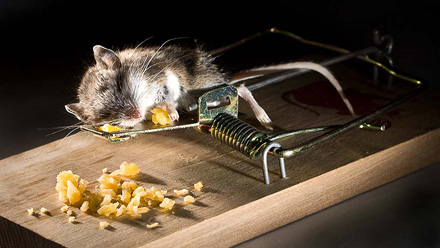
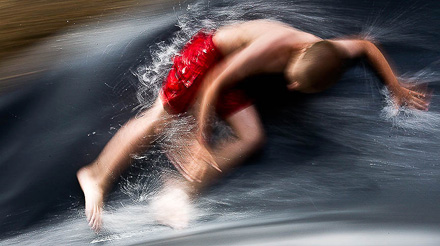
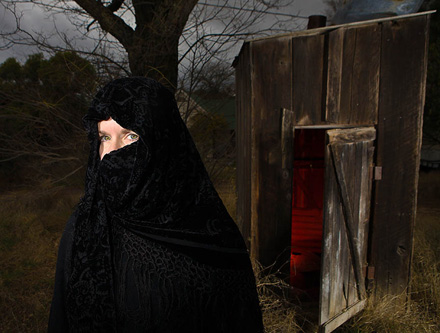
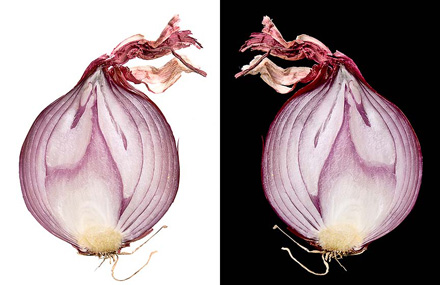


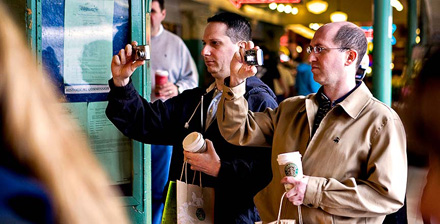

Great post. I my self am a amateur.and have been for 30yrs
http://www.mitchelsphotography.com